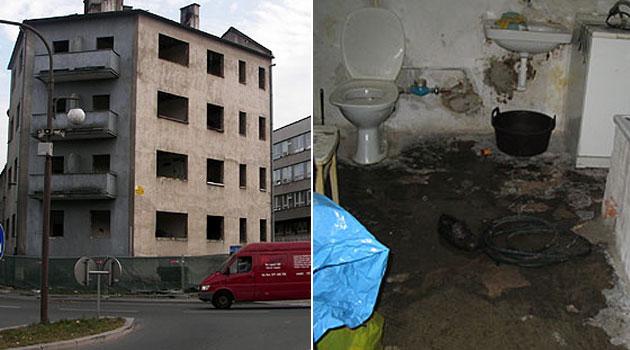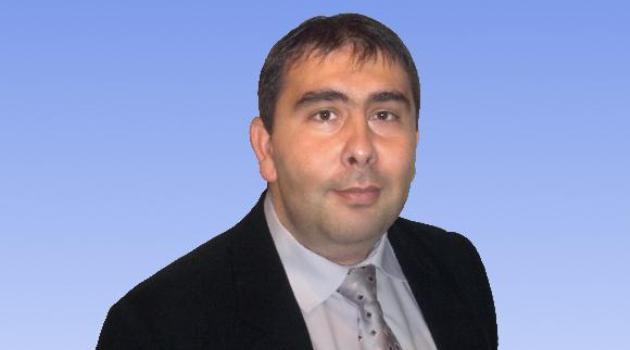Czech Christian Democratic Governor and Senator resigns his local posts but says his antigypsyist remarks not the reason

Czech Christian Democrat Jiří Čunek resigned from his post as Mayor of Vsetín on 11 April. He has also resigned from his local assembly seat.
Čunek had promised to leave his local leadership posts after being elected Governor of the Zlín Region last November. He also remains Senator for the Vsetín district.
The politician has not ruled out running for chair of the national Christian Democratic Party (KDU-ČSL) again. He is facing criticism for recent anti-Romani remarks and Lucie Fuková, a member of the Czech Government Council on Romani Minority Affairs, has demanded that collaboration cease between the Czech Government Agency for Social Inclusion and the town under his leadership.
Čunek says his resignation locally is not connected to this criticism of his anti-Romani remarks. “I announced some time ago, after the regional elections, that I would be resigning as mayor. The time has come. All of the agreements have been undertaken so that today I can, with a clear conscience, do my work and know that the town will not be damaged in some significant way, the projects to rebuild the train station and all the others that we have here will continue,” he told the Czech News Agency.
Speaking in interviews for the DVTV and XTV television stations, Čunek verbally assaulted all Romani people in the Czech Republic, just the latest remarks in a career of such outbursts. He said Romani people only know their rights, have never been accustomed to working, and are not being discriminated against.
Čunek also used the term “Gypsies” in the interviews to refer to Romani people. In his interview with DVTV, he said he had never encountered a case of Romani people being discriminated against, a particularly alarming claim as he himself engaged in such discrimination 10 years ago when he evicted dozens of Romani tenants en masse, forcibly removed some of them into an entirely other administrative region, and forced them to assume loans from the town to purchase dilapidated rural properties unfit for human habitation, all outcomes that have been condemned by the courts and by the Office of the Public Defender of Rights.
Now the politician alleged that such discrimination happens just in isolated cases – otherwise, as he put it, it is members of the “white majority” who are absolutely certain to be discriminated against. In his interview for XTV, he used the terms “Cigáni” or “Cikáni” (“Gypsies”) to refer to Romani people.
The XTV moderator, Luboš Xaver Veselý, asked the Senator about his word choice: “Is there anything wrong with our saying ‘Gypsies’?” Čunek responded: “Certainly not, the vast majority [of Roma] I know call each other Gypsies. […] I actually do not see this as pejorative, I know some Gypsies, amazing ones, you couldn’t tell the difference between them and anybody else, they are hard-working. However, there really are not many of them. The problematic group is far bigger.”
Čunek’s most recent remarks about Romani people
- “The Roma know only their rights, so we must communicate to them that they also have obligations.”
- “We will cure the adults through work and hold them to account, and we will aid the children through their studies.”
- “Believe me, they will not devote themselves to their children…”
- “Society has plundered such people by never wanting anything from them, giving them money, they destroy everything, like apartments, for example, and then society gives them money again…”
- “Even those [Romani children] who are intelligent, those who would want [to learn] are few and far between, just exceptions…”
- “The community of those who are absolutely uneducated and live just on welfare is getting bigger. If we weren’t giving them that welfare, the prisons would be full…”
- “The Gypsies have never been accustomed to working…”
- “…[Romani people] will never have any relationship to any activity besides crime…”
Representatives of the Czech Government Agency for Social Inclusion and the leadership of Vsetín municipality have signed a so-called memorandum of collaboration to concretize their cooperation within the framework of the Coordinated Approach to Socially Excluded Localities. One component of such a memorandum is always that the municipality pledges, in the context of the pro-integration process, to communicate appropriately.
“It is being demonstrated to us more and more frequently that the communication of social inclusion itself is a very important area. We point out examples of bad communications practice and good communications practice to the cities and municipalities, to what degree various media presentations of the topic of social exclusion can influence its resolution, and how,” Martin Navrátil, head of the Eastern Regional Center at the Agency, said previously.
Agency director Radek Jiránek responded to Čunek’s most recent anti-Romani remarks for news server Romea.cz by saying that he intends to meet with the Senator as soon as possible and will demand an explanation for his remarks. That meeting should take place after the Easter holiday weekend.
According to Fuková, Čunek’s anti-Romani remarks have crossed the line. She believes they have violated the memorandum on collaboration between the Agency and the town and said she would ask for the collaboration to end immediately.
“The Czech Government Council on Romani Minority Affairs approved Vsetín’s collaboration with the Agency. Mr Čunek is responsible for the town of Vsetín, and in the past he has exploited and verbally attacked Romani people during his campaigns. If Jiří Čunek, Mayor of Vsetín and a member of the Senate, alleges that Romani people are members of an ‘inadaptable’ ethnic group, then I cannot comprehend why he should be allowed to collaborate on the integration of Romani people and draw financing for that work. It is clear he does not believe in the principles of integration. I am of the opinion that in this case, the financing expended would not be effectively used,” Fuková told news server Romea.cz.
“I will make sure, at the first available opportunity, that the Agency ceases its collaboration with the town of Vsetín because of these remarks,” Fuková told news server Romea.cz on 11 April. Čunek’s resignation was announced that same day just before 18:00 by the Czech News Agency.
Čunek, who is 58, has served as Mayor of Vsetín before – his previous terms lasted from 1998 to 2009. He became mayor there again in December 2014 after his minority coalition of the Christian Democrats with the ANO and STAN parties (which holds just 10 seats on the 21-member local assembly) was supported by three representatives of the Coalition for an Open Vsetín (Koalice pro otevřený Vsetín – KOV), which made it possible for a mayor and other council members to be chosen.
The resigning politician will now be replaced on the local assembly by Jiří Růžička, the director of the public benefit corporation Elim Vsetín, whom Čunek said he believed would also be appointed mayor yesterday. According to the law on local assembly members, Čunek remained a member until 24:00 on 11 April.
The local assembly was scheduled to gather yesterday at 16:30 to choose a new mayor. Čunek said he had groomed Růžička, a builder by training, for the office.
“I would like to continue the work that has begun,” Růžička told the Czech News Agency. Surprisingly, Čunek was not the only politician to resign in the town, as the entire council has also resigned.
The local assembly members, who remained unchanged, have since re-elected the local council not just with the support of the ANO/KDU-ČSL/STAN coalition, but also with the support of assembly members for the Civic Democratic Party (ODS), the Communist Party of Bohemia and Moravia (KSČM) and the Czech Social Democratic Party (ČSSD). Čunek said a coalition has now been created of those parties who, in his view, want to do something for the town against those who, in his view, want to spoil their plans.
That local governing coalition wanted to distance itself from the KOV assembly members over the project to fix the train station, according Čunek. The Valatrans company had recently backed away from its plan to build a shopping mall in front of the station.
The reason for the decision was an objection raised by a group called the Vsetín Forum against Issuing Land Use Decisions (Vsetínské fórum proti vydání územního rozhodnutí), which Čunek believes endangered the project. The Forum is part of the KOV together with the Green Party and the Pirate Party.
Michal Berg, leader of the KOV, has now been removed as head of the local assembly’s Finance Committee, while other KOV representatives have been removed from the Audit Committee. Berg said the Forum had pointed out the project’s deficiencies.
Čunek’s resignation from local office is, according to Berg, a positive thing for the town. “It was clear he did not have enough time to focus on holding all those offices at once,” Berg told the Czech News Agency.
“He has escaped this unfinished work and left the next Mayor holding the bag,” said Stanislav Pavelec, a former Vice-Mayor and current local assembly member for TOP 09. Vsetín has two vice-mayors now, Simona Hlaváčová of the KDU-ČSL and Tomáš Pifka (elected for STAN).
The council still includes two representatives of ANO and two Christian Democrats. During the 2014 local elections the winning Christian Democrats gained six local assembly members, ANO three, ČSSD three, KOV three, the Communists two, ODS two, STAN one and TOP 09 one.
